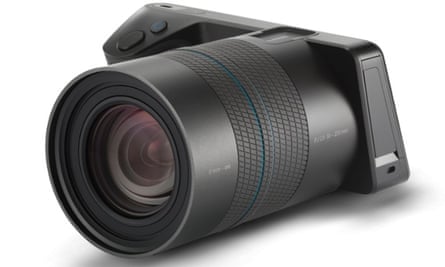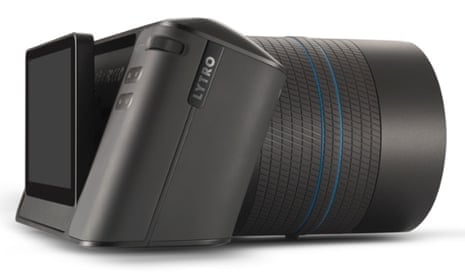A new camera promises to shoot “living pictures” by capturing the light field of an image, allowing users to refocus their photos after taking them.
Lytro’s Illum camera resembles normal mirror-less cameras like Sony’s NEX cameras, but uses the company’s new 40-megaray light field sensor instead of a traditional camera sensor. The light field sensor captures the colour, intensity and direction of every light ray flowing into the camera, rather than simply the colour and intensity of the light hitting a traditional camera’s sensor.
The result is a digital image that can be refocused after the fact using the light field information to accurately recreate the image focused on a single point, viewed in 3D or used to create custom animations potentially including those involved in virtual reality.
'Push the boundaries of creativity'
"With Lytro Illum, creative pioneers — ranging from artistic amateurs to experienced professionals — will tap into a new wave of graphical storytelling,” said Lytro chief executive Jason Rosenthal. “By combining a novel hardware array with tremendous computational horsepower, this camera opens up unprecedented possibilities to push the boundaries of creativity beyond the limits inherent in digital or film photography."

Illum is Lytro’s second attempt to revolutionise the way we take photos using light field technology to allow photographers to refocus their photos after taking them. Its first Lytro camera, released in 2012 based on technology developed by the company’s founder while studying for a PhD at Stanford University, resembled a fat lipstick in shape rather than a traditional camera, which made its adoption more difficult.
The Lytro Illum features an 8x optical zoom lens, with a fast shutter speed and a constant f/2.0 aperture, which ensures a high level of light enters the lens for clear photos.
Both arcane and fascinating
The science behind the light field camera is both arcane and fascinating, with the first light fields being captured over 18 years ago requiring a roomful of cameras and a supercomputer to process the data. Lytro has spent years shrinking the camera equipment down to a single camera sensor that has hundreds of tiny lenses that deflect the light onto the sensor as it comes into the camera.
Meanwhile, Moore’s Law, which dictates that computing power doubles every 18 months, has taken the power of the super computer and shrunk it down to fit into a standard-looking camera body.

Google, HTC and Samsung have all recently released new camera technology and software built into smartphones that allows photographers to simulate the selective focus effect called bokeh, where the background of an image is out of focus and has a pleasing blur, emphasising the in-focus subject of the image.
Lytro is hoping that its new Illum camera, which is available for pre-order for an introductory price of $1,499 (£890) for shipping in July, will offer enough to entice photographers to ditch their smartphones and digital SLRs and embrace light field technology where the company's first generation Lytro camera failed.

Comments (…)
Sign in or create your Guardian account to join the discussion